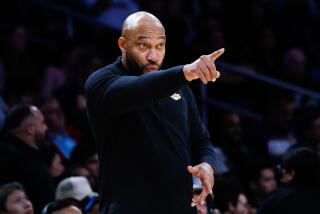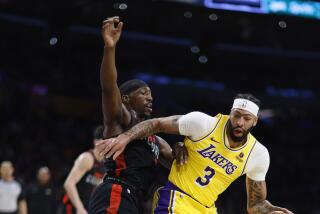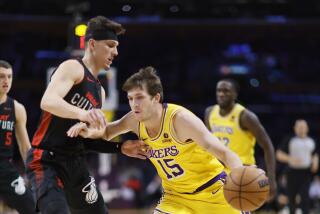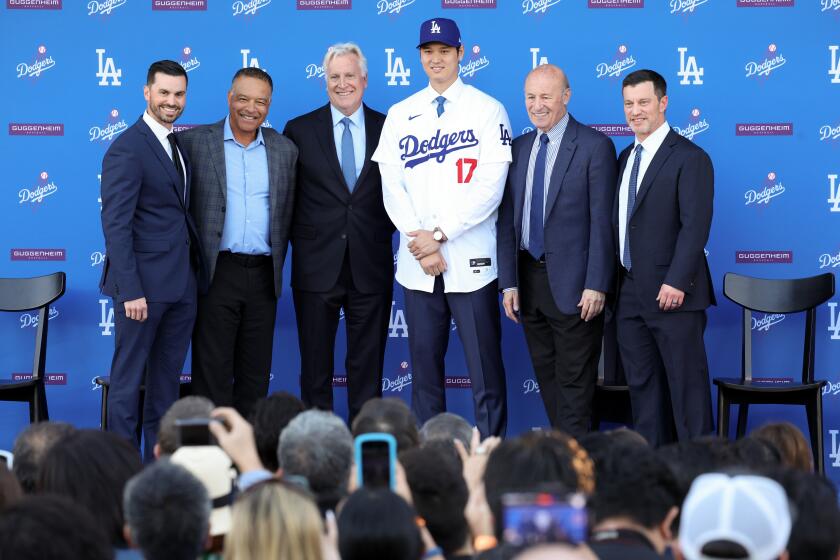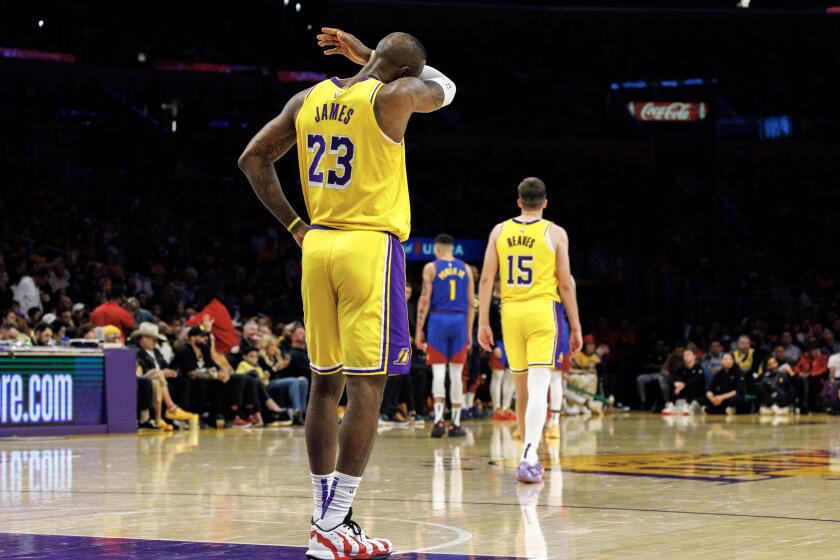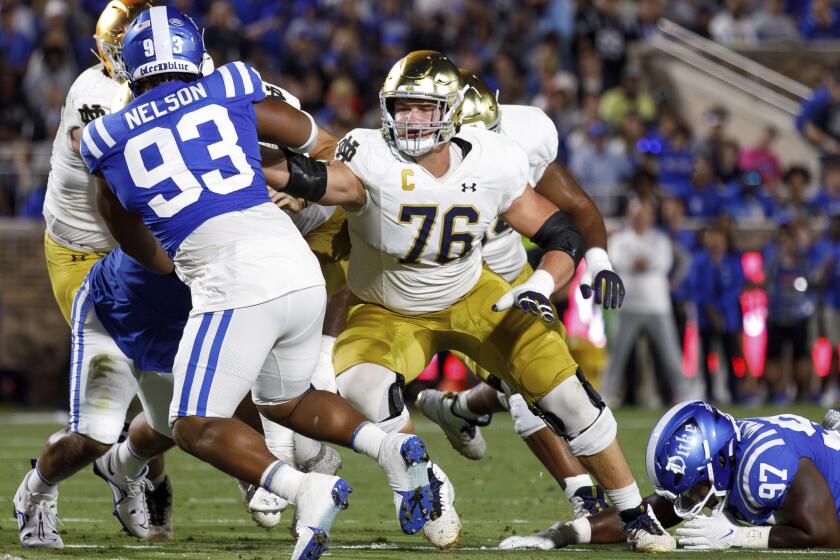Firing of Mike Brown brings mixed reactions
Lakers center Robert Sacre is a rookie, but he learns fast.
Asked Friday what he thought of management’s decision to fire Mike Brown as coach after the team lost four of its first five games, Sacre gave perhaps the most logical response.
“We’re the Lakers. We’re expected to win,” he said before the Lakers took to the court under interim coach Bernie Bickerstaff.
Sacre also quickly picked up on the heightened expectations the Lakers face every season, but this season more than most others following their additions of Steve Nash and Dwight Howard.
“It’s a business and we’re expected to win,” Sacre said. “We’re the Lakers and we have that across our chest. We’re supposed to have Ws and that’s it.”
Magic Johnson, a Lakers vice president, said on his Twitter feed he felt bad for Brown, “who’s a great guy, but don’t think he was the right guy for the job in the first place.” Johnson went on to say team President Jim Buss “has another big decision,” and declared his favorites.
“The Lakers need a championship caliber coach. I’d love to see Phil Jackson or Brian Shaw. Wish Pat Riley was available,” Johnson said. “In the meantime, the Lakers players need to come together, start playing great defense & just focus on winning.”
Bickerstaff said he agreed to coach Friday as a favor to Lakers General Manager Mitch Kupchak, an old friend from their days in Washington. Bickerstaff said the move was completely unexpected.
“How surprised? You’re being kind with the world ‘surprised.’ I was shocked,” he said during a pregame news conference. “And you know the history with Mike Brown and myself. … I’m very fond of him. It’s a tough situation.”
Lakers players said they weren’t sure what was coming when Kupchak summoned them for a meeting Friday morning at the team’s training facility.
“Nobody knew what was going on. Like everybody else in the world,” reserve guard Jodie Meeks said. “Nobody expected this to happen. You have to be professional and you have to carry on your life the way it should be.”
Meeks also said he thought Brown was still effective as coach. “We respected him and played hard for him,” Meeks said. “But we can’t really focus on that now. We have to focus on [Friday’s] game and the future.”
Reserve big man Jordan Hill said that while players leave the strategic and business side of the game to team executives they know there’s a human side that affected Kupchak when he addressed the team.
“He just thought it was what he needed to do,” Hill said. “He was definitely hurt about it but like I said it’s a business and you’ve got to deal with anything.”
Not everyone around the NBA was glum. Dallas Mavericks owner Mark Cuban, for one, seemed positively giddy about the Lakers’ turmoil.
Cuban told reporters in New York that the Lakers’ decision to fire Brown seemed hasty. “That’s a quick trigger,” Cuban said. “But, hey, it’s the same thought I have all the time. I hope they have to do it again this season. A couple times. Five times, maybe.”
He said he would never act so hastily in firing a coach, though obviously the Lakers felt compelled to make a move. “I just hope it was a huge mistake and they continue to make them,” he said.
Miami Heat Coach Erik Spoelstra, who endured a slow start with his team in 2010 and was rumored to be in danger of losing his job, said he was disappointed the Lakers didn’t give Brown more of a chance.
Spoelstra told the South Florida Sun-Sentinel he was grateful for the support and time given him by Heat owner Micky Arison and team President Pat Riley, luxuries Brown wasn’t afforded.
“Looking at it in our situation it was simply much, much different,” Spoelstra said. “We had patience. The stability comes from Micky and Pat. They were thinking big picture the whole way. There wasn’t a panic.
“Even when we were 9-8, I felt great confidence from them, but it didn’t need to be said. All we did was try to get our hands dirty and get to work and figure out collectively how to get out of that hole.”
Spoelstra’s empathy was high because like Brown, he ascended a steep ladder from video coordinator to become a head coach.
“When you see one of your coaching peers, part of your fraternity, not get an opportunity, that’s tough,” Spoelstra said. “We know what this business is like. At the same time, really, you just want an opportunity when you’re coaching, and the full season, health, etc., all of those factors to be right.”
More to Read
Get our high school sports newsletter
Prep Rally is devoted to the SoCal high school sports experience, bringing you scores, stories and a behind-the-scenes look at what makes prep sports so popular.
You may occasionally receive promotional content from the Los Angeles Times.
